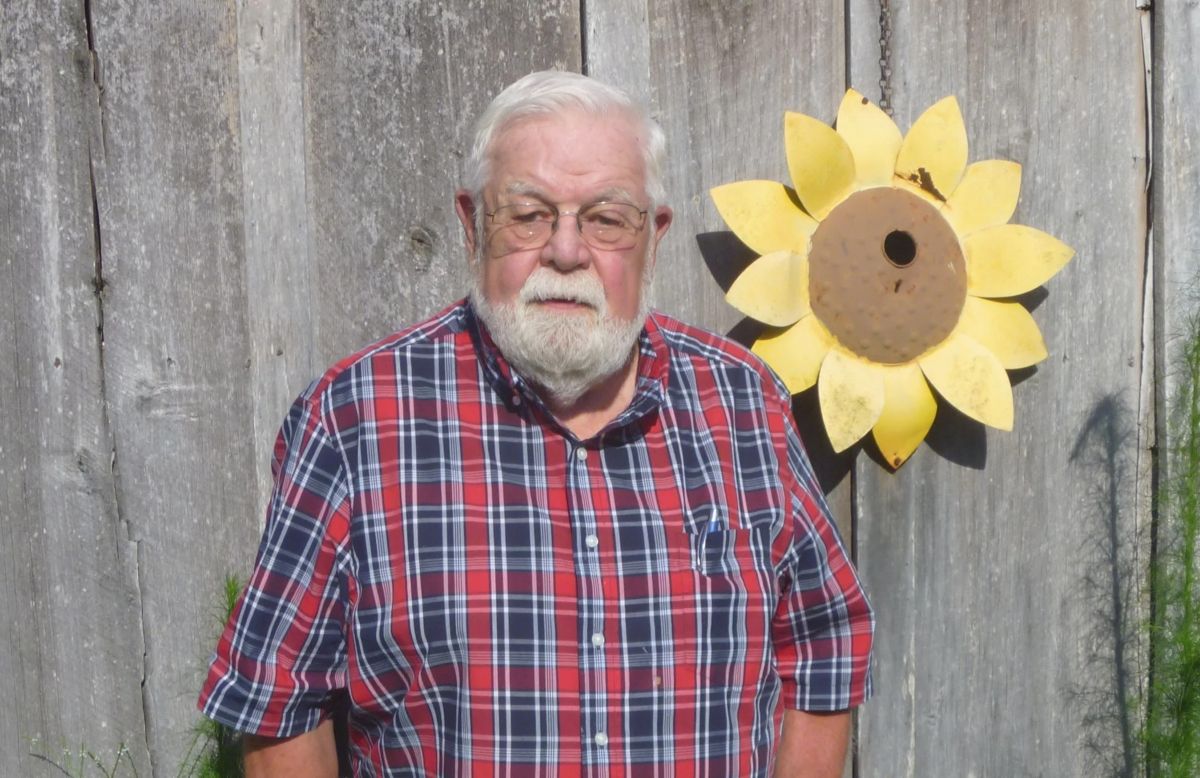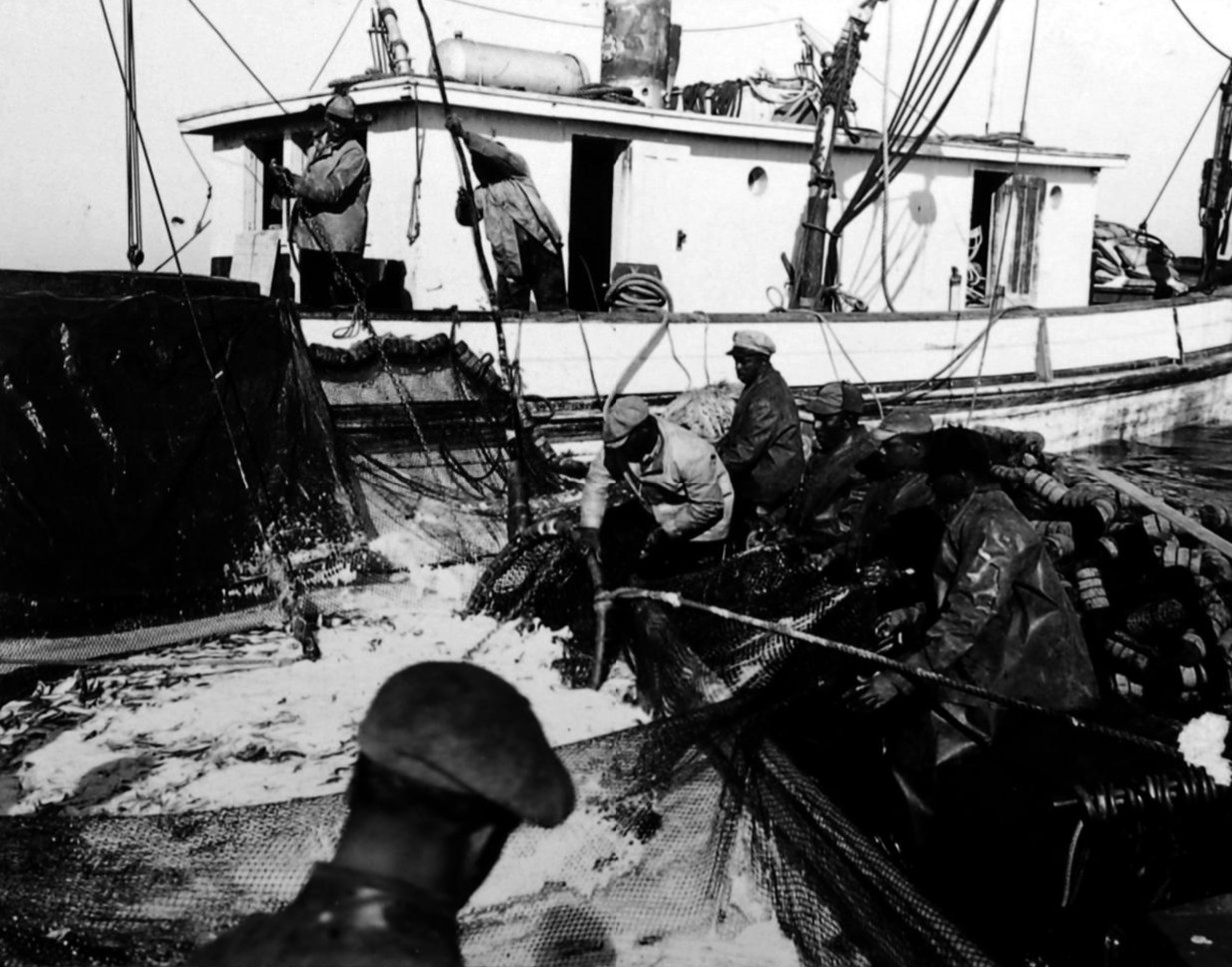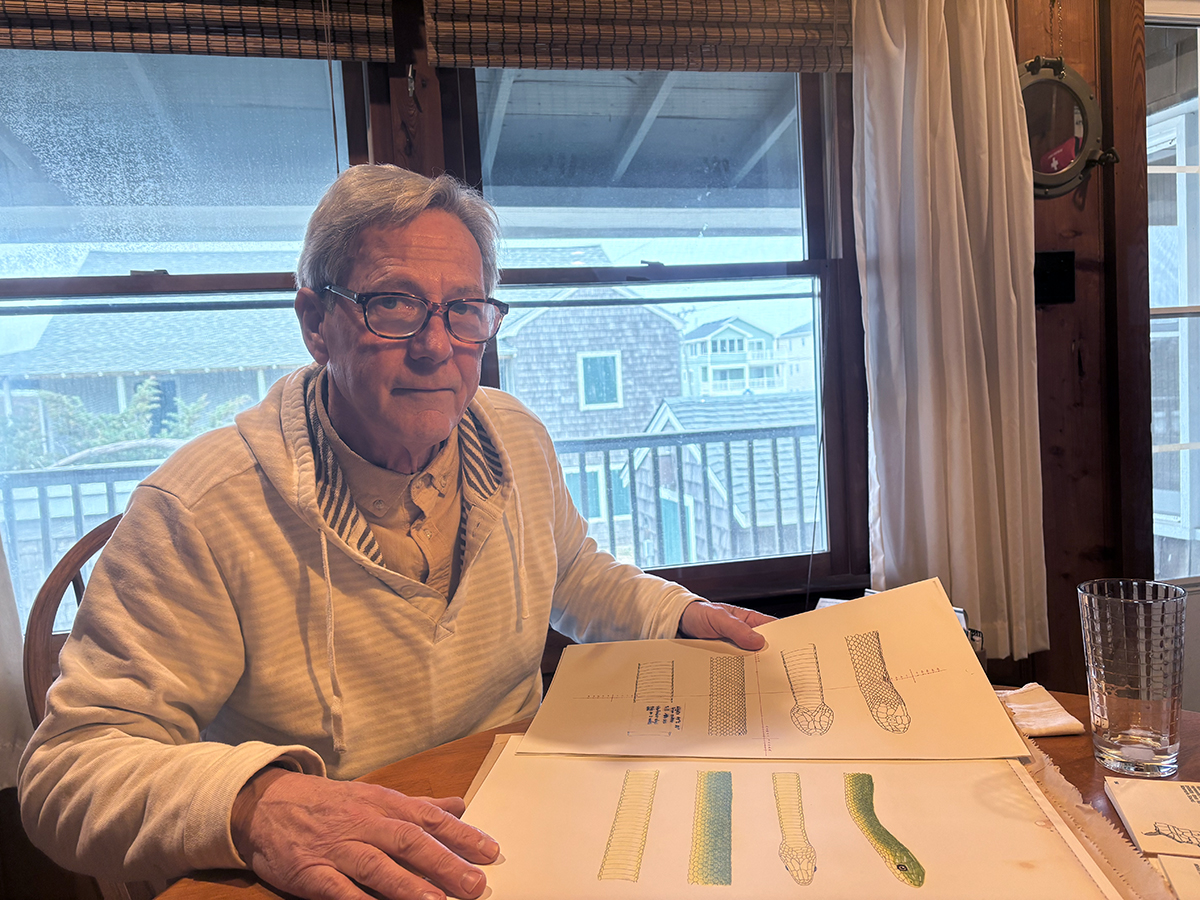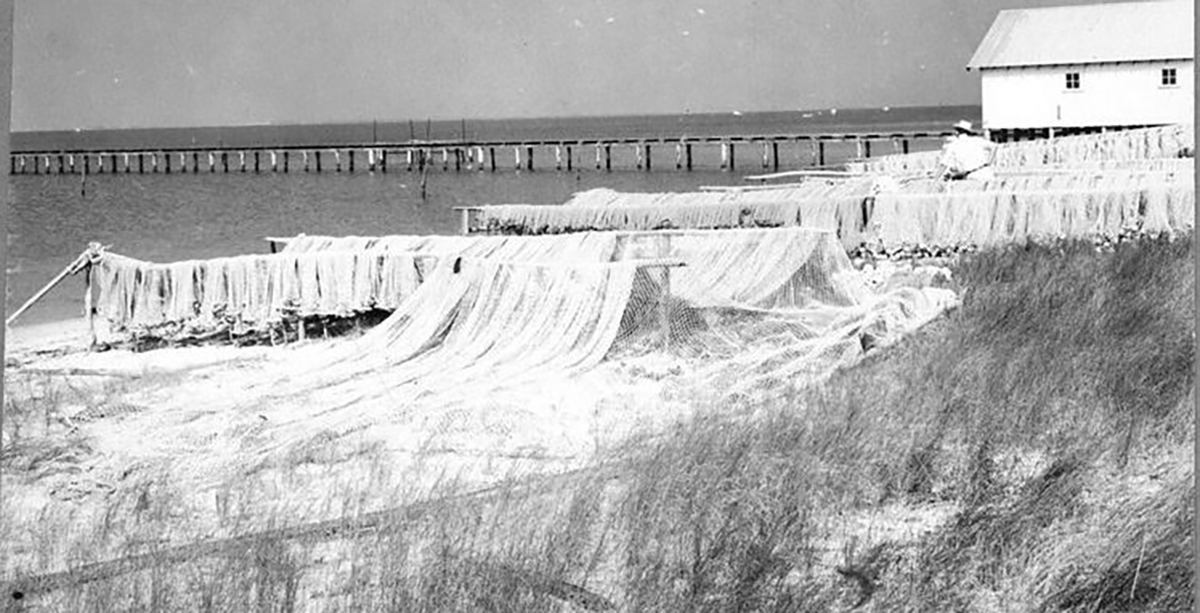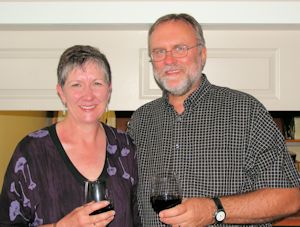 John Runkle with his wife, Nancy. |
EMERALD ISLE — When he attended that meeting at the aquarium in Pine Knoll Shores all those years ago, John Runkle had no idea that he was making a long-term commitment. He went merely to represent the N.C. Conservation Council at a meeting about coastal environmental issues.
“Just about every county along the coast had something going wrong,” Runkle remembered. “All the way from up the road Corolla way, there were coal ports here and there, filling in wetlands, all the beach issues and that kind of thing. It was quite compelling for anybody who thought that the coast was not having serious, serious problems. So we needed an organization to go ahead and take care of those things.”
Supporter Spotlight
Because it’s his way, Runkle volunteered to serve on the board of the new group that soon formed. Thirty-two years later, he’s still on the board of directors of the N.C. Coastal Federation, the only person on the 30-member board who has stuck around all this time. “These board meetings are a great reason to come down the coast four times a year,” he joked.
We were sitting on the deck of a rental oceanfront house in Emerald Isle after one of those meetings, looking out at the ocean while drinking coffee and eating biscotti that Nancy Dole, Runkle’s wife, made. She was 14 when the 16-year-old Runkle met her in high school. They’ve been married for 37 years.
And she makes a mean biscotti.
Runkle took a bite out of one before explaining the real reason why he stuck with the federation all this time. “I think it does good work,” he simply said. “It’s the only organization I’ve been involved in that long and it’s one of the few boards I’ve stayed on.”
Because he’s been there from the beginning, Runkle brings a unique perspective to the board, noted Todd Miller, the federation’s founder and executive director. “John knows where the federation has come from, what it’s been through and has a good sense for where we need to head,” he said. “Having that perspective on the board is important so that we don’t re-invent the wheel or learn from our mistakes a second time around.”
Supporter Spotlight
Social Worker Turned Lawyer
Runkle was born in northern Ohio in 1952 and still has family in the Cincinnati-Dayton area. He entered George Washington University in Washington at the height of the Vietnam War protests. “My freshman year, my dorm was gassed four times,” he says. “We had to go up to the top level to get out of the gas a couple of times.”
He ran out of money after two years and finished college closer to home at the University of Cincinnati. With a degree in social sciences, Runkle was a social worker for a while and ran homes for abused and neglected children. The work drained him. Law school sounded good.
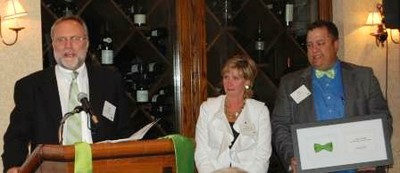 John Runkle at the podium accepting the N.C. League of Conservation Voters’s Jane Sharp Lifetime Achievement Award in 2010. |
Runkle headed south to Chapel Hill in 1979 and entered the University of North Carolina. “Law school was an easy three years,” he remembered. “Once you decide you’re not going to be top of your class, it’s not that hard. You show up and read the books and it’s not that dramatic.”
While in law school, Runkle began working for the Conservation Council. He continued with the group after graduation until he opened his own law firm in Chapel Hill in 1988. Concentrating in environmental law, the practice flourished.
“By the time I went into private practice, I knew every environmentalist. I knew all the professionals and I knew most of the leaders of the organizations,” Runkle said. “So when they were looking for something they came to me.”
Growing up in Ohio, Runkle enjoyed camping, hiking and other outdoor activities. Environmental law, then, seemed like a natural fit, he said. There are some side benefits as well. “Most of the environmentalists that you meet are interesting, fairly healthy,” Runkle said. “You get to go to neat places and see neat things. I can’t say that it ever paid very well, but if my car ever broke down somewhere in North Carolina, there’s somebody who would put me up for a week or two.”
His clients have included national coalitions opposed to nuclear energy, large environmental organizations, local governments and small, single-issue groups – “You know,” he said, “friends of this and people against that.”
Most of his work now consists of rate and solar-energy cases before the N.C. Utilities Commission, but he’s handled everything – nuclear and coal plants, hog waste and hazardous waste, sewage discharges and land conversation. He’s argued cases at every level of the judicial system and has been the primary or supporting attorney in at least 12 cases before the state Supreme Court.
The N.C. League of Conservation Voters honored Runkle for all that work in 2010 by giving him its Jane Sharp Lifetime Achievement Award. Since 1980, Runkle was an integral part of the group since as staff or board member, president and legal counsel.
Moonshine and Oysters
Most of the time, money was the usual form of payment. A group up in the mountains, though, once paid Runkle in moonshine. “I did a coastal permit case once and got two bushels of oysters and a hundred dollar bill,” he said. “I thought that was a good deal for a day’s work. I gave Nancy the hundred dollar bill and invited all the neighbors for an oyster roast.”
Though the northwest corner of the state’s mountains is legendary for good corn liquor, Lou Zeller has always paid Runkle the conventional way for all the work he’s done over the years.
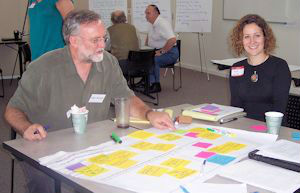 John Runkle at a N.C. Coastal Federation retreat. That’s staffer Ana Zivanovic-Nenadovic at the table with him. |
“John’s the best environmental attorney in the state, bar none,” said Zeller, the executive director of the Blue Ridge Environmental Defense League in Glendale Springs. “What he understands that many attorneys do not is how community organizing campaigns work. He will tell you if that’s a bad idea and won’t work. When we do get into a campaign John is willing to work with us side by side.”
Runkle said he’s always surprised at how little local groups understand local politics. “Half of what I do is social work and organizing, breaking down who knows whom on the commission,” he explained. He considers it a mark of success when one of his former clients later is elected to local office.
As the lawyer from Chapel Hill, Runkle is often branded by opponents as nothing more than a hired-gun, or worst, a radical environmentalist. After a county commissioner in a zoning case leveled that charge, Runkle went down the row of locals who had hired him and asked how long their families had been in the county – 1818, 1846, 1895. “I could see this commissioner’s head getting bigger and bigger,” Runkle laughed. “If I had done two more his head would have exploded.”
When he’s not defending the state’s environment, Runkle likes to fish at the beach or tend the large vegetable garden he and Nancy plant each year at their home in Orange County, about four mile from downtown Chapel Hill. They pick about 100 quarts of blueberries from their bushes and this year planted more than 500 onions and 50 tomato plants. Runkle now works from a home office, which allows him to stir the tomatoes that seem to be constantly simmering on the stove in the summer. “I can do that and work at the same time,” he said.
And that home is always open to clients, noted Janet Marsh, the founder of the Blue Ridge Environmental Defense League. “He’s always eager to open his home to our staff,” she said. “We save money but I believe he enjoys the social interaction because John is an activist as well as an attorney. That gives him a very special place in my heart because that’s essentially what we are.”



